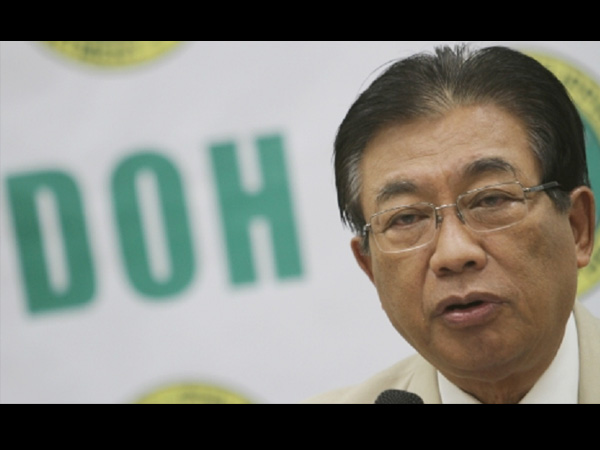Immunization drive targets 95% of children nationwide
With recently hired 11,000 nurses added to beef up the present number of health professionals manning government-run health hospitals and centers, the Department of Health (DOH) is confident that the target 95 percent coverage is very achievable after the conclusion of the National Immunization Program this month.
“These nurses—who are trained vaccinators—are now deployed all over the country to help inform parents and guardians that no child and infant should die of a vaccine-preventable disease. Together with our partners in the barangays, we will try to compel all parents and guardians to proceed to the nearest health center to avail the free vaccination,” said Health Undersecretary Janette Garin.
The campaign, which will run for the whole month of September, aims to protect about 13 million Filipino newborns to below 5 years old against measles and rubella (German measles), and 11 million against polio.
“Eleven to 13 million of children are at risk of polio and measles while some areas (in the Philippines) still have a less than 50 percent vaccination coverage,” said President Aquino when he graced the launch of the month-long campaign at the DOH compound in Manila.
Measles and rubella continue to be a threat to Filipino children, with a significant number of recorded measles cases and deaths in 2013 and 2014. The DOH National Epidemiology Center reported that a total of 44,666 suspect measles cases have been reported nationwide from Jan. 1 to July 5 this year. Of these, 16,214 (36 percent) were confirmed.
Unfortunately, 91 percent of those with confirmed measles have already died.
Bring children
“I urge all mother and caregivers to bring children regardless of their vaccination status, from newborns to below 5 years old, to the nearest health center to have them vaccinated against measles, rubella, and polio. Magkaisa. Magpabakuna,” urged Health Secretary Enrique Ona during the campaign’s launching ceremony.
Garin said this year’s campaign concentrates on information dissemination to urge parents and guardians to bring the children to the hospital or health center.
Garin explained: “In the past, the department opted to conduct house-to-house visits. While this has been successful, there were instances wherein the target children were not immunized as they were not in the house at the time of the visit. This also created a situation wherein the parents or guardians in the succeeding years just wait for someone to come to the house. There were no more efforts to visit a hospital or health center. Some parents and guardians also thought that the first shot is already enough and that a follow up shot is no longer needed. This year’s nationwide campaign hopes to solve these challenges.”
The vaccine preventable measles is caused by a virus that is highly contagious and is spread by coughing, sneezing, or direct contact with infected nasal or throat secretions. If untreated, measles may result to complications, namely, pneumonia, diarrhea, blindness and even encephalitis.
Considered as high risk
Despite achieving polio-free status since 2000, the Philippines is still considered at high risk for wild polio virus importation and subsequent outbreak. To address this, the DOH said oral polio vaccine is critical for all newborn babies and children up to five years of age.
The nationwide campaign is a follow-up to the Global Commitment to Child Survival-A Promise Renewed initiative to accelerate action for maternal, newborn and child survival. It aims to protect about 13 million Filipino children against measles and rubella, and 11 million against polio.
The United Nations Children’s Fund (Unicef) has provided three million doses of measles-rubella vaccine, and 1.2 million doses of polio vaccine in support of the national immunization campaign of the DOH.
Lotta Sylwander, Unicef Philippines representative, said during the launching ceremony that the world’s leading advocate for children will continue to support the country in ensuring that every Filipino child has access to quality lifesaving immunization. “Every child has the right to survive and thrive, to have the best possible start in life and grow up to reach their full potential,” she said.

